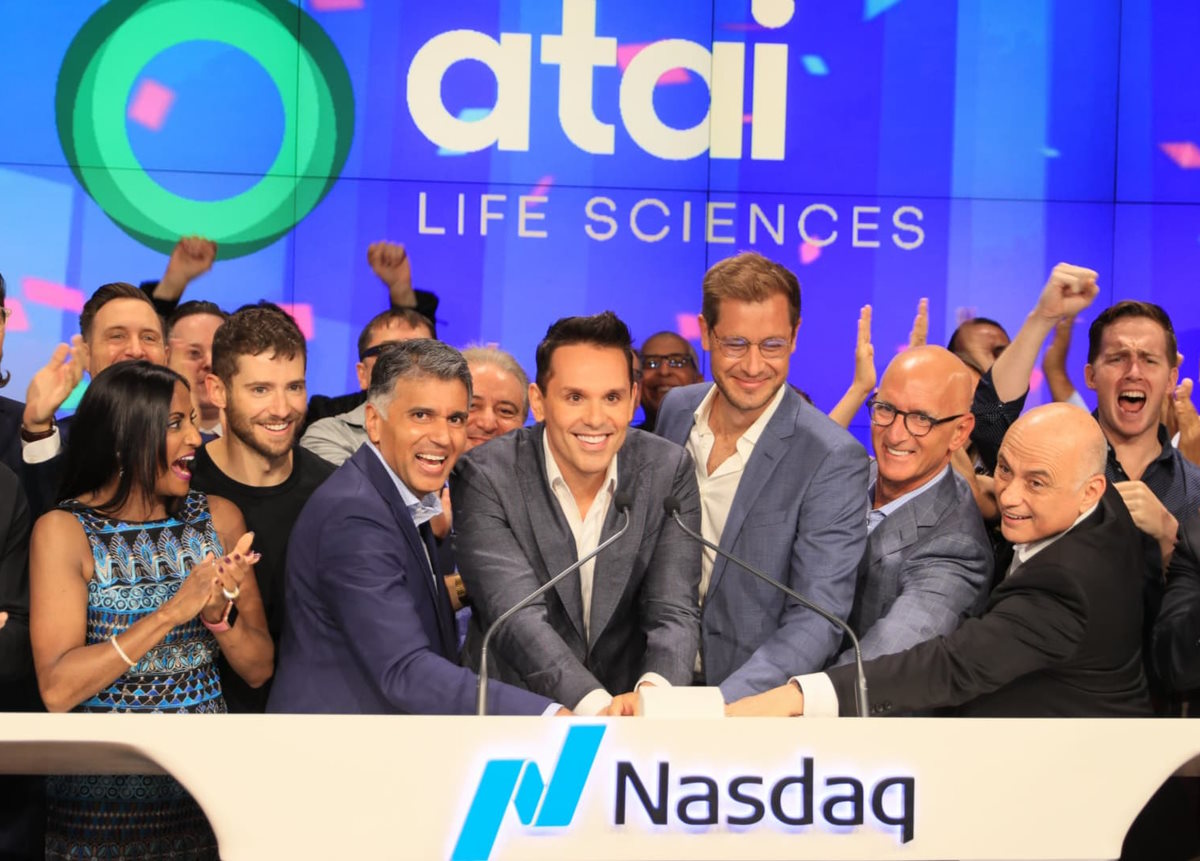Psilocybin
Chrisitian Angermayer Shows Faith in Atai, Buys Another 1.2 M Shares
The article Chrisitian Angermayer Shows Faith in Atai, Buys Another 1.2 M Shares was originally published on Microdose.
On March 29th, Christian Angermayer,…

The article Chrisitian Angermayer Shows Faith in Atai, Buys Another 1.2 M Shares was originally published on Microdose.
On March 29th, Christian Angermayer, Founder and Chairman of atai Life Sciences (Nasdaq: ATAI), announced that he was buying more shares of the psychedelic medicines and biotechnology company.
Through his investment firm Apeiron, Angermayer purchased an additional 1,214,297 shares of the psychedelics company. At a price of $1.318 per share, Angermayer’s investment firm spent a little more than $1.6 million on the purchase.
In response to this show of faith in the company, whose stock has tumbled a whopping 93.6% since its IPO in June 2021, ATAI has since rebounded an impressive 31% on the news (as of Friday) — though that means it is still down roughly 90% from its IPO.
Angermayer — whose net worth Forbes pegs at around $1 billion — has been a vocal promoter of the possibility of using psychedelics as medicines. With the most recent purchase, Apeiron now owns more than 32 million shares in atai.
Angermayer explained his rationale for increasing his stake in the company in a LinkedIn blog post, entitled 14 Reasons Why I am Increasing My Stake in atai Life Sciences.
I am increasing my stake in @atai_life
Net cash + value of @COMPASSPathway stake makes approx. USD 356m or USD 2.14/share. Shares trading with 38% discount to that! But that's just one reason. I have 13 more. Check out my latest blog post! $ATAI $CMPShttps://t.co/IDrV5XH0s9
— Christian Angermayer (@C_Angermayer) March 29, 2023
In my opinion, the most important reason he provided is “A simple sum-of-the-parts calculation.”
In other words, when you combine the amount of cash that atai has — $258 million — with its 22.4% stake in psilocybin company Compass Pathways (worth $98 million), and disregard any actual science or other work atai is conducting — the company should be worth roughly $356 million, or $2.14 per share. As atai currently has a stock price of $1.83 and a market cap of $304 million. Meaning it is trading at a 14% discount.
And again, that would be assuming that atai never sees a return on its capital in the form of selling future medicines, an assumption which is hopefully incorrect.
Angermayer then went on to write that he believes in atai’s drug development pipeline “of 5 clinical-stage drug development programs (and ownership interests in a total of 7 such programs)” — 4 of which “are psychedelic” and 3 of which “are non-psychedelic substances.”
He then highlights the “prior evidence in humans” and the potential market size for atai’s medicines, citing that “1 billion people suffer worldwide from mental health issues,” though he believes the real number may be higher and growing.

While investors in the psychedelics space will have to wait years before we know which medicines are the most effective in which situations, and then wait longer still for the companies who make these medicines to become profitable, it is nice to see the leader of a company putting his money where his mouth is.
Retail investors in the psychedelics space will likely remember the saga of then MindMed (Nasdaq: MNMD, NEO: MMED) CEO JR Rahn selling much of his stake in the company. While this did not affect the likelihood of MindMed eventually succeeding in its quest to create medicines based on LSD, it undoubtedly hurt retail investor confidence in the company.
After all, why invest in a psychedelic company whose own leaders are selling their stock?
On the flip side, we have a company whose stock has been mercilessly tumbling (along with stocks of the rest of this nascent industry) — and yet atai’s leader is putting more of his money into the company. While, again, this does not affect the actual probability of whether the company will ultimately succeed or not, it signals to investors that atai’s leaders still believe that they will see a return on their investment, despite the extended market funk.
For more on atai, check out Atai CEO Answers Questions From the Public
psilocybin lsd psychedelic psychedelics ipo investors stocks shares trading nasdaq invest capital mindmed compass atai atai life sciences
-

 Psilocybin1 week ago
Psilocybin1 week agoCalifornia advances bill for psychedelics centers
-

 Psilocybin5 days ago
Psilocybin5 days agoPassover Perspectives: Psychedelics, Moses, and the Burning Bush
-

 Psychedelics1 week ago
Psychedelics1 week agoPsychedelics Can Offer More Than Therapy On Its Own
-

 Psychedelics4 days ago
Psychedelics4 days agoAlgernon NeuroScience and the Centre for Human Drug Research to Present DMT Phase 1 Stroke Clinical Data at the Interdisciplinary Conference on Psychedelic Research June 6 – 8th, 2024
-

 Psychedelics5 days ago
Psychedelics5 days agoRevive Therapeutics Announces Type C Meeting Request Granted by FDA for Clinical Study of Bucillamine to Treat Long COVID
-

 Psychedelics4 days ago
Psychedelics4 days agoatai Life Sciences Announces Dosing of First Patient in Part 2 of Beckley Psytech’s Phase 2a Study Exploring BPL-003 Adjunctive to SSRIs in Patients with Treatment Resistant Depression
-

 Psychedelics5 days ago
Psychedelics5 days agoRevive Therapeutics Announces Type C Meeting Request Granted by FDA for Clinical Study of Bucillamine to Treat Long COVID
-

 Psychedelics5 days ago
Psychedelics5 days agoSilo Pharma Announces Positive Results for Intranasal PTSD Treatment








